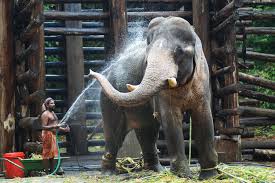Economic Struggles and Animal Care
The economic challenges faced by many nations, particularly in tourist hotspots, can have a profound impact on local communities and their animal populations. As conditions deteriorate, the ability to care for stray animals diminishes dramatically, leading to troubling scenarios for creatures in need.
Challenges of Feeding Strays
In places like Old Havana, this phenomenon is starkly visible. Local residents, such as an elderly woman known for her dedication to feeding stray cats, are finding it increasingly difficult to maintain their routines amid financial limitations. The reliance on donations from restaurants and personal resources has become a burdensome task.
The Rise in Stray Populations
With official tourism taking a hit due to economic downturns, the number of abandoned animals has surged. Reports indicate a significant rise in the number of homeless cats and dogs, with estimates suggesting an increasing number of animals being abandoned on the streets each day. Activists have noted that many individuals have taken it upon themselves to turn their homes into makeshift shelters, but the demand for resources often exceeds what they can provide.
Barriers to Animal Care
While local governments might offer some support through veterinary services, the fundamental needs of food and shelter are left unmet. For many caretakers, the escalating costs of basic supplies become overwhelming. For instance, a single bag of dog food can cost nearly the equivalent of a month’s salary, forcing many to seek alternatives that may not provide adequate nutrition. This situation reflects a grim reality for both the animals and the community members who strive to help them.
Community Responses to the Crisis
Amid the hardships, grassroots movements have emerged as essential avenues for change. Volunteer groups have rallied to care for colonies of stray animals, providing feed and medical care where they can. However, support is often limited to what volunteers can muster from their own pockets and through small donations.
- Cat colonies are being established in parks, providing a semblance of safety and nourishment.
- Local advocates are working tirelessly to secure donations and support for veterinary clinics, highlighting the importance of proper care and vaccinations.
- Individuals are encouraged to adopt pets rather than abandon them, fostering a communal sense of responsibility.
The Role of Tourists
Tourism traditionally played a supportive role in many communities, but with the decline in visitors, the strain on animal welfare has intensified. Tourists can make a difference by engaging with local organizations committed to humanitarian and animal welfare efforts, offering financial support or even volunteering their time while visiting.
Understanding the Costs
The heartbreaking truth in areas like Cuba is that animal care has become a luxury many cannot afford. With the average monthly salary barely sufficient for basic living expenses, the question of how to feed stray creatures becomes secondary when human needs take precedence. This cascading crisis highlights the intersection of economic hardship and animal welfare.
How Can LocalsRide Help?
For those looking to contribute positively while traveling, platforms such as LocalsRide.com offer a unique opportunity. Not only can users select their specific vehicle and get upfront information about prices and ratings, but they can also support local economies that are essential for animal welfare initiatives. This transparency is unmatched by traditional booking systems, making it easy for individuals to make the most of their travels while giving back to the communities they visit.
A Personal Touch Matters
While numerous reviews and testimonials can provide insight into the state of animal welfare in these areas, nothing compares to experiencing the situation firsthand. Engaging with local organizations can yield a deeper understanding of the context and challenges at hand. Moreover, choosing services through LocalsRide enables travelers to support local providers while ensuring a reliable and economical travel experience. This choice arms users with better options at fair prices, allowing informed decisions without disillusionment.
In summary, the plight of abandoned animals in tourist regions reveals a nuanced crisis helped by community action but hindered by economic limitations. By supporting services like LocalsRide, travelers can navigate their experiences with the assurance that their choices positively impact both tourism and local animal welfare initiatives. And remember, as the relationship between tourism and community welfare continues to evolve, the involvement of informed travelers is critical. Start planning your next adventure and secure your worldwide transfer with LocalsRide.
Book your Ride with LocalsRide.com
